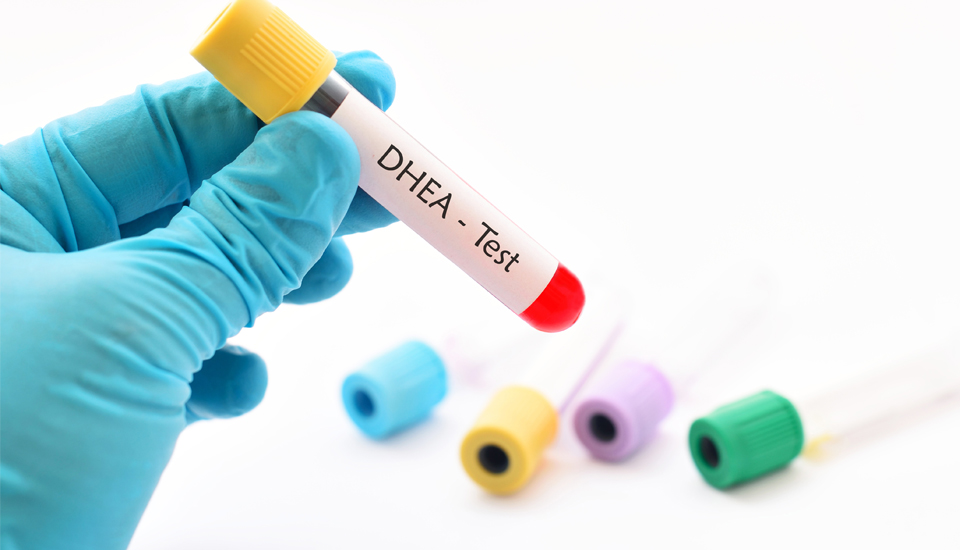DHEA and Its Role in Fertility for Toronto Functional Medicine Patients
POSTED ON FEBRUARY 27, 2022 BY TORONTO FUNCTIONAL MEDICINE CENTRE

If you were to visit our Toronto functional medicine clinic for fertility purposes, the topic of DHEA would likely be discussed.
DHEA is a hormone that plays an important role in an individualized, patient-centered, science-based approach to fertility. DHEA levels decline as women age, which can lead to fertility problems. Women with low ovarian reserve often have low DHEA levels, and research has shown that DHEA supplementation could improve fertility rates for these women. In addition, DHEA may help improve egg quality and increase the chance of successful pregnancy.
If you’re struggling with infertility, we urge you to speak to a functional medicine practitioner, such as our clinic’s nurse practitioner or medical doctor, to see if DHEA is suitable for your distinctive health care plan. In the meantime, read this blog post to understand how DHEA could optimize fertility.
Functional Medicine Approach: What is DHEA and How Does it Work?
DHEA is a crucial hormone for improving hormonal health and fertility in Toronto patients. DHEA is produced by the adrenal glands, which are located near the kidneys. The body uses DHEA to make other fertility-related hormones such as testosterone and estrogen. As we previously mentioned, DHEA levels naturally decline as women age, and this subsequently can lead to fertility health issues.
DHEA assists your body by making further estrogen and progesterone so that you can improve your chances of getting pregnant naturally or through IVF. These two hormones are important for egg quality control and sperm motility (movement) control during pregnancy planning stages, prior to conception happening inside a woman’s uterus after sexual intercourse.
Diminished Ovarian Reserve in Toronto Functional Medicine Patients
DHEA helps fertility by supporting egg quality and improving pregnancy rates in women with diminished ovarian reserve (DOR). DOR, also commonly called age-related infertility by fertility specialists, refers to small-sized follicles and a reduced ovarian follicular pool size at a given age.
Women with DOR produce a low optimal number of oocytes; the quality of their embryos is low, too. Both of these factors reduce the rates of implantation and pregnancy. To know if you have low ovarian reserve, a blood test called an Anti-Mullerian Hormone (AMH) blood test must be conducted. (FYI: please speak to our functional healthcare providers )
How DHEA Supports Fertility Functional Medicine Treatments
Women with DOR often have meagre DHEA levels, which may contribute to their poor response to fertility treatment. Research has shown that fertility treatments are effective for women with low ovarian reserve when DHEA is used; this effect may be related to the role that DHEA plays in improving egg quality.
DHEA may help to improve egg quality by promoting follicular steroidogenesis, increasing IGF-1, acting as a pre-hormone for follicular testosterone, reducing aneuploidy, and increasing AMH and antral follicle count. In a 2019 meta-analysis, nine prospective randomized control trials were analyzed, which included 833 patients. Patients treated with DHEA had a greater number of retrieved oocytes, clinical pregnancy rates and live birth rates.
Diminished ovarian reserve is a diagnosis that many Toronto women receive when they have difficulty getting pregnant. Our integrative approach to wellness consists of compassionate, functional care for patients struggling with infertility. If you’ve been diagnosed with DOR, we can offer you support – let’s determine if DHEA prescriptions are suitable for you.
Interested in DHEA for Fertility? Visit the Toronto Functional Medicine Centre
At the Toronto Functional Medicine Centre (TFMC), our goal is to help increase your chances of getting pregnant and help you reach optimal wellness.
Our Toronto private practice provides an integrative approach to functional medicine programs. A wide range of our functional medicine treatments emphasizes naturopathic medicine, Traditional Chinese Medicine, Western medicine/allopathic medicine , herbal medicine, bioidentical hormone replacement therapy, and acupuncture.
According to functional medicine wisdom, each patient is a unique entity. Our functional medicine providers address fertility by customizing treatment plans for your biology only. Functional medicine testing may be recommended, as well as fertility-specific treatments pertaining to lifestyle modifications, hormone imbalances, nutritional deficiencies, chronic diseases, disease prevention, and more.
Interested in using DHEA for your fertility goals? Let’s improve your pregnancy chances at the Toronto Functional Medicine Centre. Speak to our nurse practitioner or medical doctor to begin your path to pregnancy – call (416) 968-6961.
Disclaimer: The information in this article is designed for educational purposes only and is not intended to be a substitute for informed medical advice or care. This information should not be used to diagnose or treat any health problems or illnesses without consulting a doctor. Consult with a health care practitioner before relying on any information in this article or on this website.
References:
A.Wiser, O. Gonen, Y. Ghetler, T. Shavit, A. Berkovitz, A. Shulman, Addition of dehydroepiandrosterone (DHEA) for poor-responder patients before and during IVF treatment improves the pregnancy rate: A randomized prospective study, Human Reproduction, Volume 25, Issue 10, October 2010, Pages 2496–2500, https://doi.org/10.1093/humrep/deq220
Elisabetta Baldi, Michaela Luconi, Monica Muratori, Sara Marchiani, Lara Tamburrino, Gianni Forti, Nongenomic activation of spermatozoa by steroid hormones: Facts and fictions, Molecular and Cellular Endocrinology, Volume 308, Issues 1–2, 2009, Pages 39-46, ISSN 0303-7207, https://doi.org/10.1016/j.mce.2009.02.006.
Fouany, M.R., Sharara, F.I. Is there a role for DHEA supplementation in women with diminished ovarian reserve?. J Assist Reprod Genet 30, 1239–1244 (2013). https://doi.org/10.1007/s10815-013-0018-x
Narkwichean, A., Maalouf, W., Campbell, B.K. et al. Efficacy of dehydroepiandrosterone to improve ovarian response in women with diminished ovarian reserve: a meta-analysis. Reprod Biol Endocrinol 11, 44 (2013). https://doi.org/10.1186/1477-7827-11-44
Xu L, Hu C, Liu Q, Li Y. The Effect of Dehydroepiandrosterone (DHEA) Supplementation on IVF or ICSI: A Meta-Analysis of Randomized Controlled Trials. Geburtshilfe Frauenheilkd. 2019;79(7):705-712. doi:10.1055/a-0882-3791

